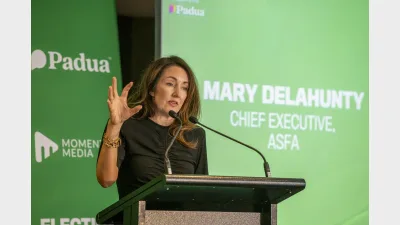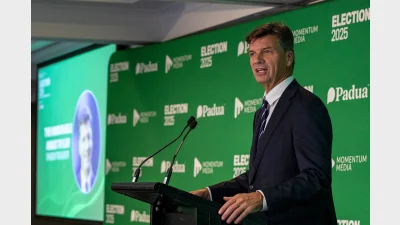Superannuation industry bodies welcome changes
The superannuation industry has broadly welcomed the final shape of the Stronger Super changes, with a few caveats.
The Association of Superannuation Funds of Australia (ASFA) said the reforms would help the industry cope with the issue of employees changing jobs on a regular basis.
"The advent of MySuper and increased 'back-of-house' efficiencies, through SuperStream, will deliver better retirement outcomes for most Australians," said ASFA chief executive Pauline Vamos.
The industry will be able to deliver consumers more transparent information about how performance is achieved and what members are paying for, Vamos said.
However, she added that much work remained to be done - and she was keenly anticipating the release of the draft legislation and the Australian Prudential Regulation Authority standards.
Australian Institute of Superannuation Trustees chief executive Fiona Reynolds said it was important for people to understand that MySuper was not about 'dumbing-down' super.
"At last, we have a timetable to rid commissions from default super funds. For many Australians, super will become more cost-effective, more comparable, and easier to understand," Reynolds said.
While Reynolds was happy to see the measures to consolidate super that are effectively 'lost' in multiple accounts, she argued the Government's proposal to cap the account size that is automatically consolidated at $10,000 by 2014 was a mistake.
"If auto-consolidation is to have a real impact on the $19 billion lost super problem, it needs to be applied to all inactive accounts, irrespective of balance size," Reynolds said.
However, she added that the flexible pricing scheme for MySuper would have to be monitored closely to ensure that Australians were not transferred to more expensive accounts without their consent.
Reynolds also welcomed the Government's timetable to implement electronic payments throughout superannuation.
The Industry Superannuation Network (ISN) said the Stronger Super package would lead to legislation that "delivers greater integrity to the superannuation system and financial advice industry".
The ISN also stated it would be encouraging the Government to remove the $10,000 threshold for the automatic consolidation of account balances when it is due to increase in 2014.
ISN chief executive David Whiteley also anticipated the publication of APRA league tables, which he said would help employers and employees select default funds.
"The onus will continue to be on employers and employees, or their representatives, to ensure a strong safety net is in place for employees who do not choose their own super fund," Whiteley said.
Recommended for you
Aware Super has made a $1.6 billion investment in a 99-hectare industrial precinct in Melbourne’s North which, the fund clarified, also houses the nation’s first privately funded open-access intermodal freight terminal.
ASFA has affirmed its commitment to safeguarding Australia’s retirement savings as cyber activity becomes an increasing challenge for the financial services sector.
The shadow treasurer is not happy with the performance of some within the super sector, telling an event in Sydney on Thursday that some funds are obsessed with funds under management, above all else.
As the Australian financial landscape faces increasing scrutiny from regulators, superannuation fund leaders are doubling down on their support for private markets, arguing these investments are not just necessary but critical for long-term financial stability.












